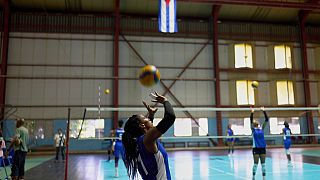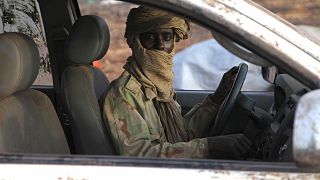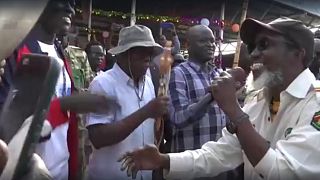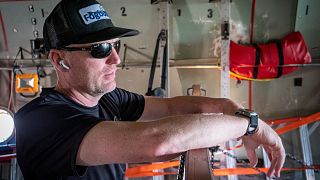South Sudan
Five athletes from South Sudan see their chance in participating in the Summer Olympic Games in Rio as a sign of hope, as they prepare to compete as refugee Olympic team.
The athletes most of them who fled the war in Sudan about ten years ago, were selected from a series of sports trails held at a Kakuma refugee camp in Kenya last year.
While speaking at a news conference in Rio on Sunday, one of the athletes, James Chiengjiek, 28 said he hoped his participation at the games would send a positive message to his country.
“I think it is a good moment for all the refugees, not only people who are participating because as we all know, we are representing the millions of refugees all over the world and it is a chance to show the refugees also that they can do something,” he said.
Another team mate, Yiech Pur Biel said he was sad at not being able to compete under his country’s flag, but hoped this would push his country’s leaders to make changes.
“We can’t be here in Brazil running under the South Sudan flag, and I call upon the other nations to help our country because maybe (by the) 2020 Olympics we can run (under) our national flag of South Sudan because we are eager to set up our young talented South Sudanese,” he added.
Rio Olympic opens this Friday and run until August 21, this years Games is the first to include an entire team of refugees.
The team includes 10 athletes from four countries all of whom will compete under the Olympic flag.













01:47
New International Olympic Committee president Kirsty Coventry faces high expectations
01:50
Faith Kipyegon falls short of historic sub-four minute mile but vows to keep pushing
01:04
Basketball: NBA star Giannis Antetokounmpo visits Brazil amid trade rumours
00:41
Gaga Mania: Rio Crowd Breaks Records
01:09
Zimbabwean Kirsty Coventry elected International Olympic Comittee president
22:26
Boxer Imane Khelif says unbothered by gender talk ahead of 2028 Olympics